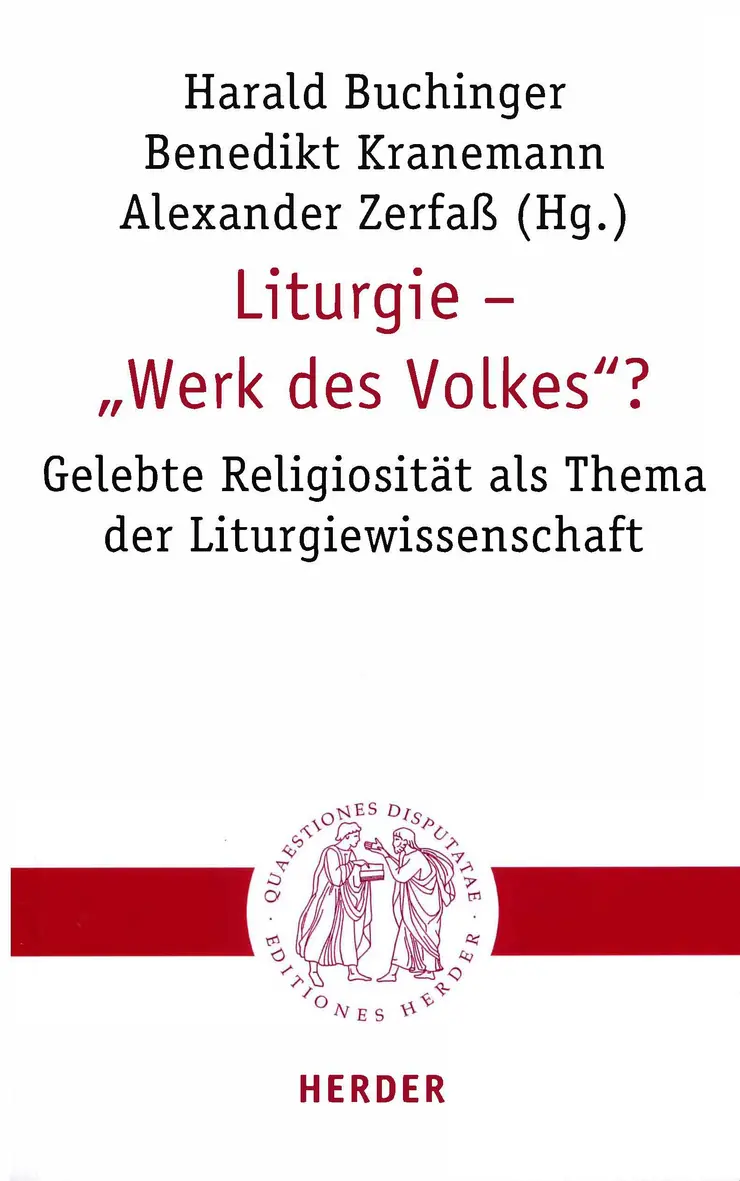Vatican II considers the liturgy to be the culmination and source of ecclesial activity. However, it is not only in recent times that only a small minority of the baptized regularly participate in the worship of the Church; many carry out their religious life in other forms of expression. To what extent, then, is liturgy a "work of the people"? What is the significance of lived religiosity beyond the official worship service? How is the relationship between liturgy and lived religiosity to be determined historically and theologically? What are the consequences for the concept of liturgy, but also for ecclesiology? These and similar questions are explored in the new book edited by Harald Buchinger, Benedikt Kranemann and Alexander Zerfaß, now published by Herder publishing house.
The editors:
- Harald Buchinger, born 1969, Dr. theol., Professor of Liturgical Studies at the Faculty of Catholic Theology of the University of Regensburg; deputy speaker of the research group "Beyond the Canon" (DFG-FOR 2770) and principal investigator of the research training group "Metropolität in der Vormoderne" (DFG-GRK 2337).
- Benedikt Kranemann, born 1959, Dr. theol., Professor of Liturgical Studies at the Faculty of Catholic Theology, University of Erfurt; head of the "Theological Research Centre at the University of Erfurt".
- Alexander Zerfaß, b. 1978, Dr. theol., Professor of Liturgical Studies and Sacramental Theology at the Faculty of Catholic Theology of the University of Salzburg, deputy head of the Interdisciplinary Center for Medieval and Early Modern Studies; chairman of the "Arbeitsgemeinschaft katholischer Liturgiewissenschaftlerinnen und Liturgiewissenschaftler e.V.".

